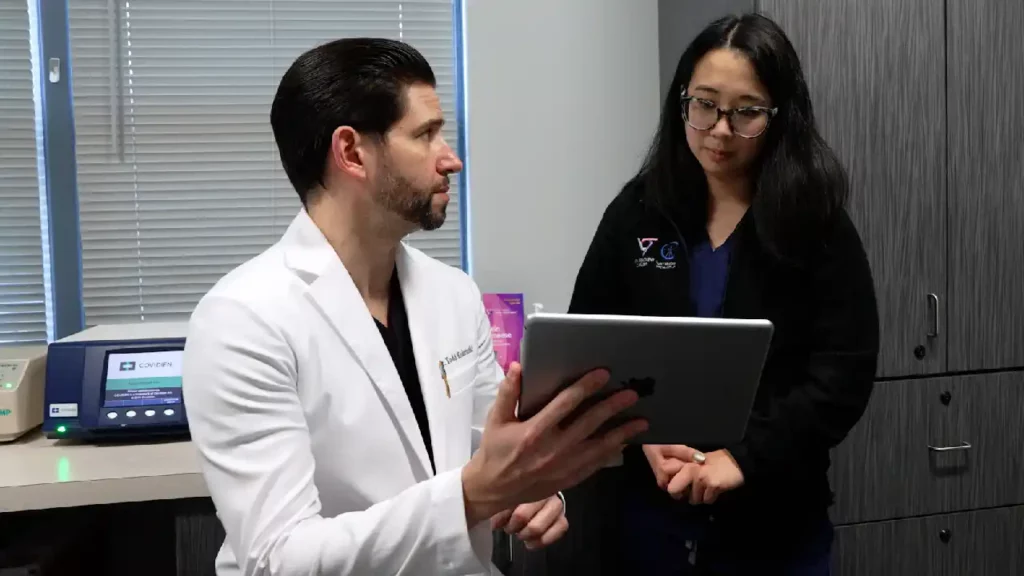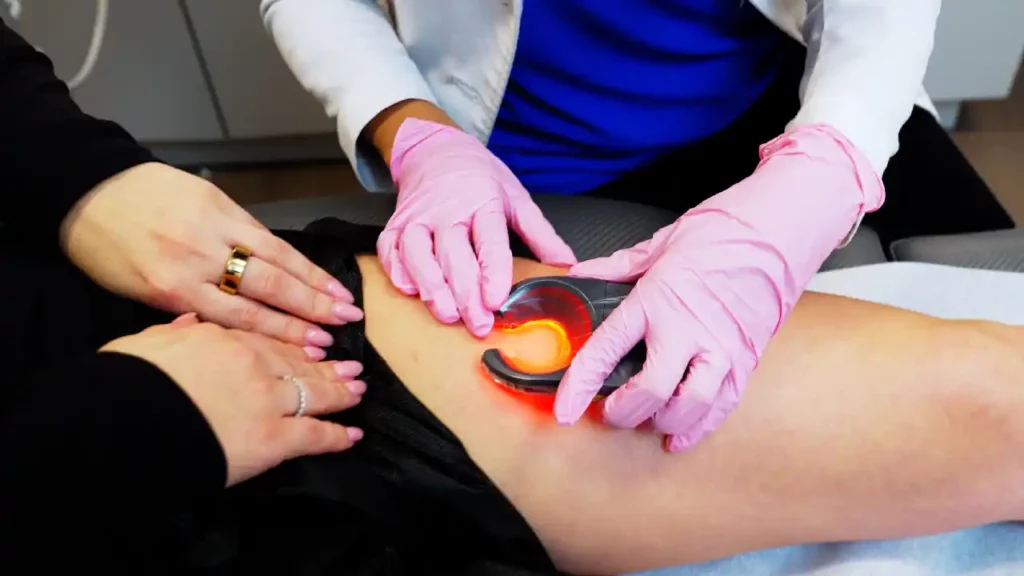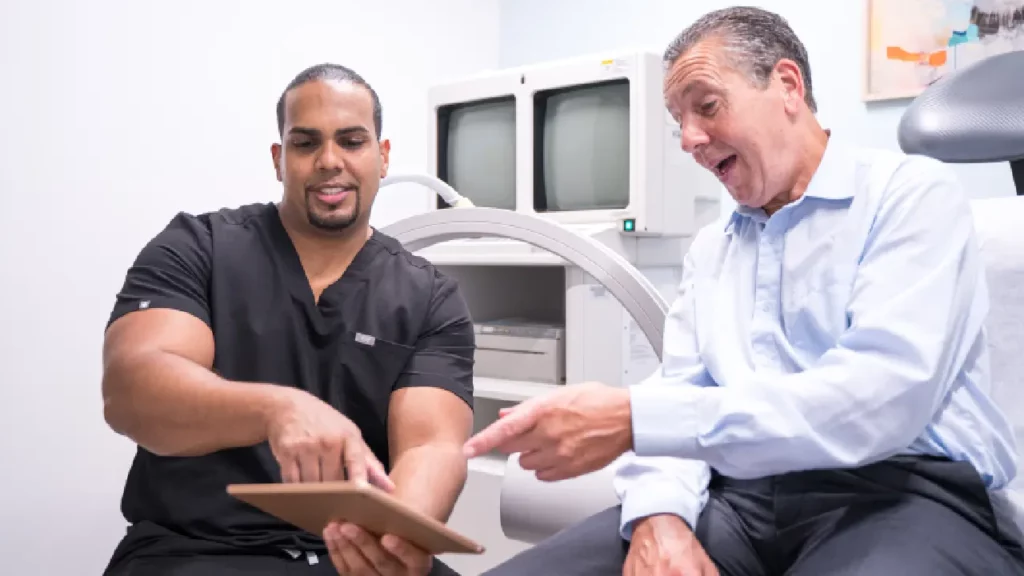WHEN SHOULD I SEE A VEIN SPECIALIST?
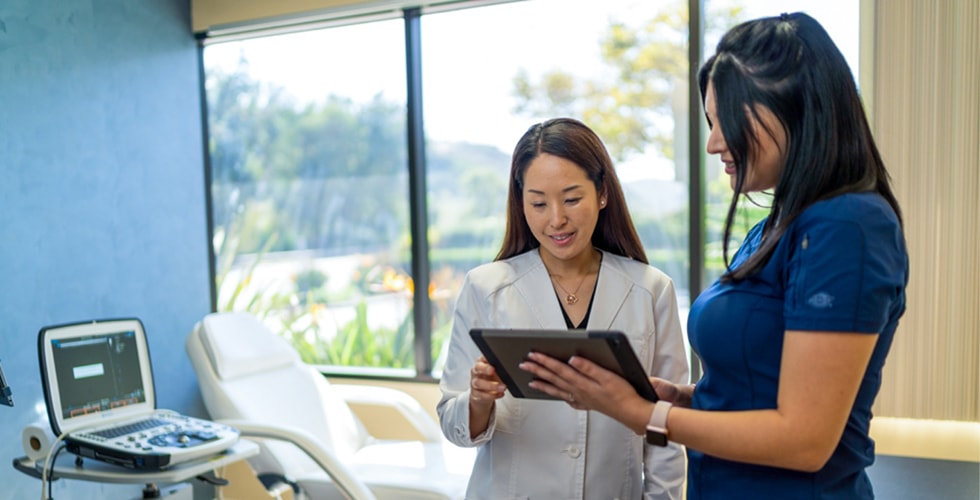
If you’re wondering how to prevent varicose veins in legs, you may have a high risk of varicose veins. Perhaps you have a family history of vein problems, perhaps you have a medical history of blood clots in your leg veins, or maybe you want to avoid varicose veins during pregnancy. You may suffer from varicose veins, spider veins, and other vein problems for various reasons, such as genetic predisposition, hormonal changes, obesity, a sedentary lifestyle, and more.
While you can’t prevent varicose veins with complete assurance, you can take measures to minimize the risk of varicose veins. To understand why you can’t prevent varicose veins, you must understand what causes varicose veins. We describe the root cause of varicose veins, how you can stop varicose veins from forming, and how to prevent varicose veins in the legs.
What is the main cause of varicose veins?
Varicose veins are dense blood vessels that bulge out of the skin’s surface, usually looking like a thick mass of tangled, twisted, and knotted ropes. They might look like dense branches of trees or twisted ropes underneath your skin. Varicose veins are damaged blood vessels with a high volume of accumulated blood. The primary root cause of varicose veins is an underlying circulatory disorder known as chronic venous insufficiency.
Chronic venous insufficiency is a medical condition caused by the collapse of vein valves. Healthy veins have valves that act as one-way doors that allow blood to flow towards the heart, even when they must resist the force of gravity. When your vein valves collapse, gravity forces blood to flow backward and accumulate in the leg veins, eventually leading to dilated veins, spider veins, and bulging varicose veins.
As such, chronic venous insufficiency is the primary root cause of varicose veins.
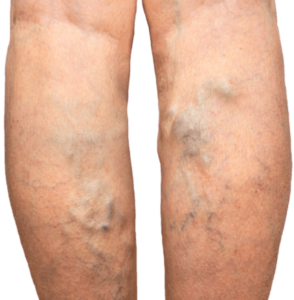
Bulging Varicose Veins
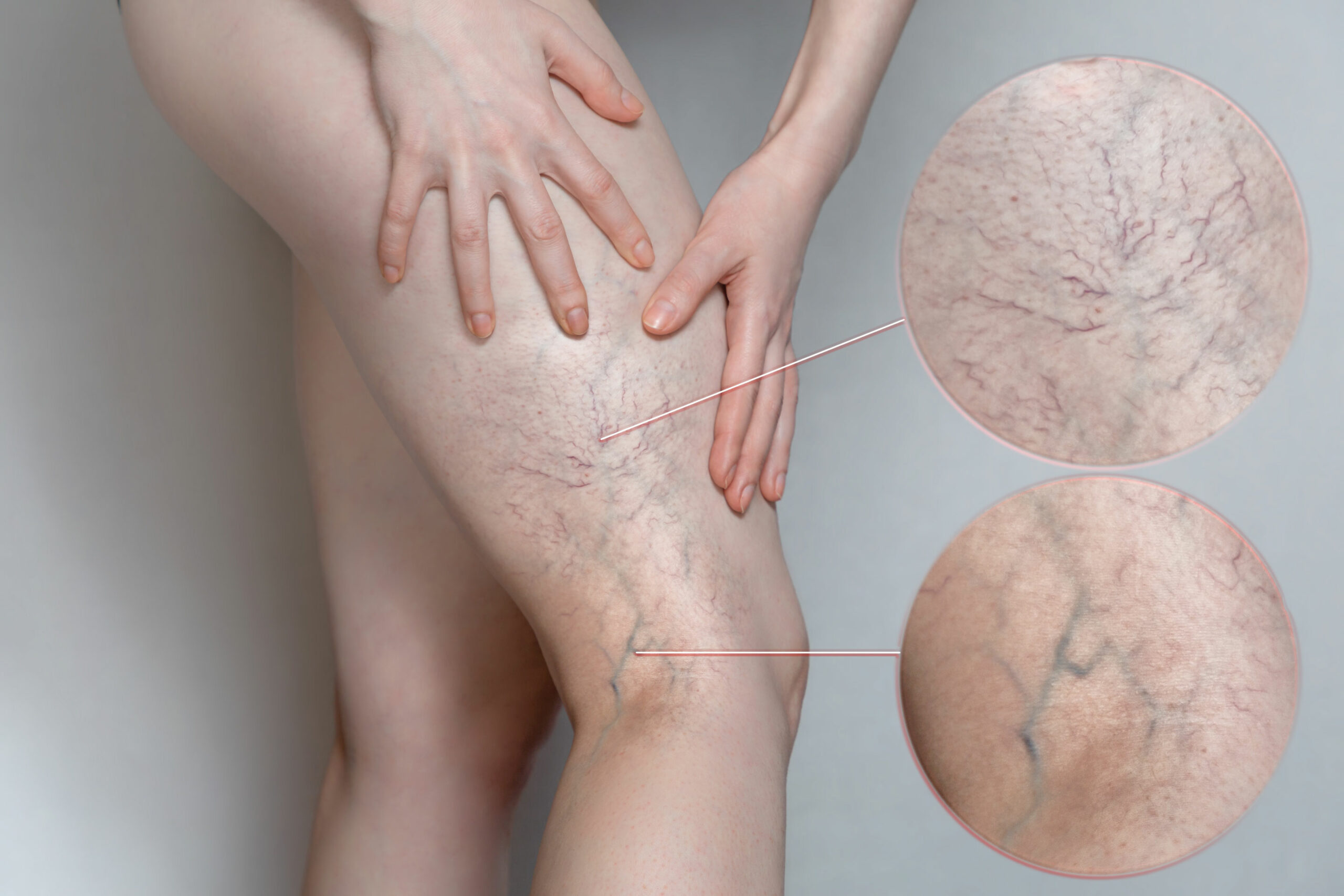
Spider Veins
Can you stop varicose veins from forming?
The only way to stop varicose veins from forming is to prevent the collapse of your vein valves. But your vein valves may malfunction for a complex range of factors. Some primary risk factors for vein disease include genetic predisposition, biological sex, hormonal changes, aging, being overweight, pregnancy, and occupation that involves long periods of sitting or standing still. As such, there are no definitive ways to stop varicose veins from forming.
How can I prevent varicose veins in my legs naturally?
How to prevent varicose veins in legs? That’s one of the most common questions people ask about varicose veins. Unfortunately, since varicose veins may occur for a wide range of reasons and lifestyle factors, there are no definitive ways to prevent varicose veins. But you can make certain lifestyle changes to improve your vascular health and blood circulation, reducing the risk of varicose veins in your legs.
The following are the most effective ways to minimize the risk of varicose veins in the legs.
Wear Compression Stockings
Compression stockings are skin-tight garments that apply pressure on your leg veins. They prevent blood from accumulating in the leg veins and push some of the accumulated blood in the leg veins to your heart. If you wear compression stockings regularly, you can minimize the volume of blood accumulated in your leg veins, thus reducing the risk of varicose veins. Compression stockings can’t treat vein disease, but they can minimize the symptoms.
Exercise/ Walk Regularly
Regular exercise can dramatically reduce the risk of varicose veins in your legs. When you walk or engage in cardiovascular exercises, you improve your blood circulation, which reduces the risk of your vein valves collapsing. Furthermore, when you engage your calf muscles, you push some of the accumulated blood towards the heart, which minimizes the risk of varicose veins. The best exercises to reduce the risk of varicose veins include running, swimming, and cycling.
Avoid Sitting or Standing Still
You should ideally avoid sitting or standing still for long periods of time. When you sit or stand still for long periods, blood accumulates in your leg veins, leading to an increased risk of varicose veins. That’s why varicose veins are common amongst drivers, nurses, teachers, pilots, and people with desk jobs. If your job is sedentary, take short breaks every 30 minutes to stretch your legs and walk around the office.
Elevate Your Legs
You should elevate your legs while sitting down to reduce the risk of varicose veins. When you elevate your legs above your heart’s level, blood flows back towards your heart, alleviating some of the pressure from your leg veins. If you have a high risk of vein problems, you should elevate your legs for 10 to 15 minutes a few times a day. You can even prop your legs up on some pillows while lying down.
Remain Hydrated
You must drink lots of water and stay hydrated. Water improves blood circulation and strengthens your vein valves, which minimizes the risk of vein disease and varicose veins. Besides improving your circulation, drinking water is also good for general health.
Consult Your Vein Doctor
If you notice the signs and symptoms of vein disease, such as leg heaviness, leg pain, leg cramps, restless leg syndrome, or spider veins, especially at night or after long periods of sitting or standing still, you must contact your vein doctor. The aforementioned symptoms indicate that you may have underlying vein disease, which means you have a high risk of varicose veins. Your vein doctor will curate a personalized treatment plan for underlying vein disease.
Vein Treatment is led by a group of highly-skilled, board-certified vein doctors specializing in the latest minimally invasive spider vein and varicose vein treatments. Our vein doctors always investigate the root cause of your vein problems, diagnose chronic venous insufficiency at the earliest stage possible, and offer personalized vein treatment plans. Our prompt approach to vein care helps you avoid spider veins, varicose veins, and other complications of vein disease.
Get the Best Vein Treatment
from Top-Rated Vein Specialists





